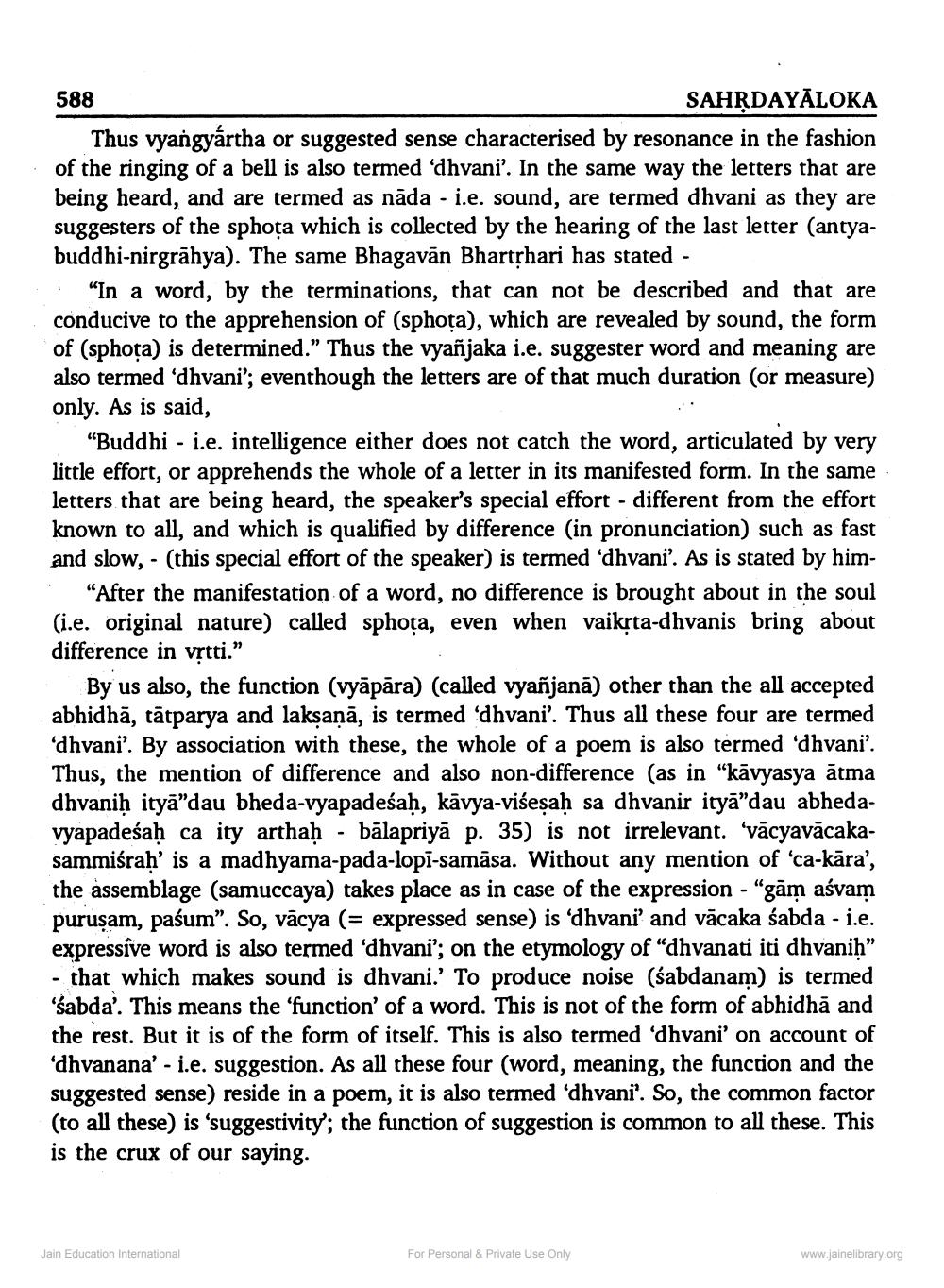________________
588
SAHRDAYĀLOKA Thus vyangyártha or suggested sense characterised by resonance in the fashion of the ringing of a bell is also termed 'dhvani'. In the same way the letters that are being heard, and are termed as nāda - i.e. sound, are termed dhvani as they are suggesters of the sphoța which is collected by the hearing of the last letter (antyabuddhi-nirgrāhya). The same Bhagavān Bhartrhari has stated -
"In a word, by the terminations, that can not be described and that are conducive to the apprehension of (sphota), which are revealed by sound, the form of (sphota) is determined." Thus the vyañjaka i.e. suggester word and meaning are
lso termed 'dhvani'; eventhough the letters are of that much duration (or measure) only. As is said,
"Buddhi - i.e. intelligence either does not catch the word, articulated by very little effort, or apprehends the whole of a letter in its manifested form. In the same letters that are being heard, the speaker's special effort - different from the effort known to all, and which is qualified by difference (in pronunciation) such as fast and slow,- (this special effort of the speaker) is termed 'dhvani'. As is stated by him
"After the manifestation of a word, no difference is brought about in the soul (i.e. original nature) called sphota, even when vaikrta-dhvanis bring about difference in vrtti.”
By us also, the function (vyāpāra) (called vyañjanā) other than the all accepted abhidhā, tātparya and laksanā, is termed 'dhvani'. Thus all these four are termed dhvani'. By association with these, the whole of a poem is also termed 'dhvani'. Thus, the mention of difference and also non-difference (as in "kāvyasya ātma dhvanih ityā"dau bheda-vyapadeśaḥ, kāvya-višeṣaḥ sa dhvanir ityā”dau abhedavyapadeśaḥ ca ity arthaḥ - bālapriyā p. 35) is not irrelevant. 'vācyavācakasammiśrah' is a madhyama-pada-lopī-samāsa. Without any mention of 'ca-kāra', the assemblage (samuccaya) takes place as in case of the expression - "gām aśvam purusam, pašum”. So, vācya (= expressed sense) is 'dhvani' and vācaka sabda - i.e. expressive word is also termed 'dhvani'; on the etymology of “dhvanati iti dhvanih" - that which makes sound is dhvani.' To produce noise (sabdanam) is termed 'sabda'. This means the 'function' of a word. This is not of the form of abhidhā and the rest. But it is of the form of itself. This is also termed 'dhvani' on account of dhvanana' - i.e. suggestion. As all these four (word, meaning, the function and t suggested sense) reside in a poem, it is also termed 'dhvani'. So, the common factor (to all these) is 'suggestivity'; the function of suggestion is common to all these. This is the crux of our saying.
Jain Education International
For Personal & Private Use Only
www.jainelibrary.org




